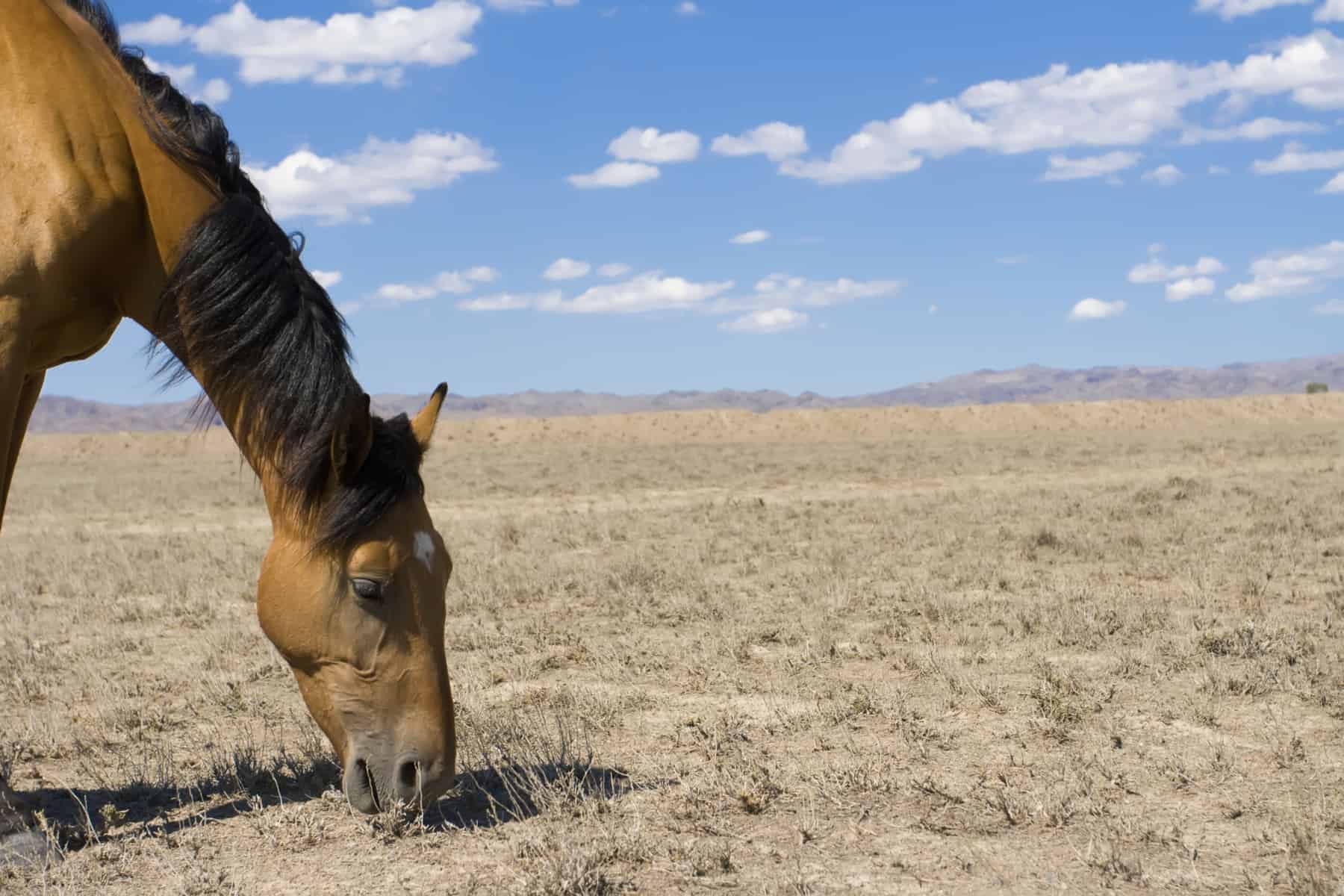Keeping Pastured Horses Safe During Drought

Horses aren’t as susceptible to nitrate toxicity or prussic acid poisoning from plants as are ruminant species, such as cattle and sheep. A rumen’s microorganisms facilitate toxin release from the plants into the animal’s digestive tract. Horses, however, are monogastric (one- stomached) animals and are more capable of breaking down prussic acid in the stomach, and convert very little nitrate to nitrite (wherein lies the problem in cows) in the large intestine.
Nitrate and prussic acid toxicity in horses are rare, but when they do occur, they typically have serious consequences.
During periods of low moisture, certain grass species can produce toxic products such as nitrates. Nitrates accumulate in plants–such as pigweed, smartweed, ragweed, nightshade, and goldenrod–that are heavily fertilized with nitrogen, or during certain weather conditions and after frost
Create a free account with TheHorse.com to view this content.
TheHorse.com is home to thousands of free articles about horse health care. In order to access some of our exclusive free content, you must be signed into TheHorse.com.
Start your free account today!
Already have an account?
and continue reading.
Written by:
Kristen M. Janicki, MS, PAS
Related Articles
Stay on top of the most recent Horse Health news with















